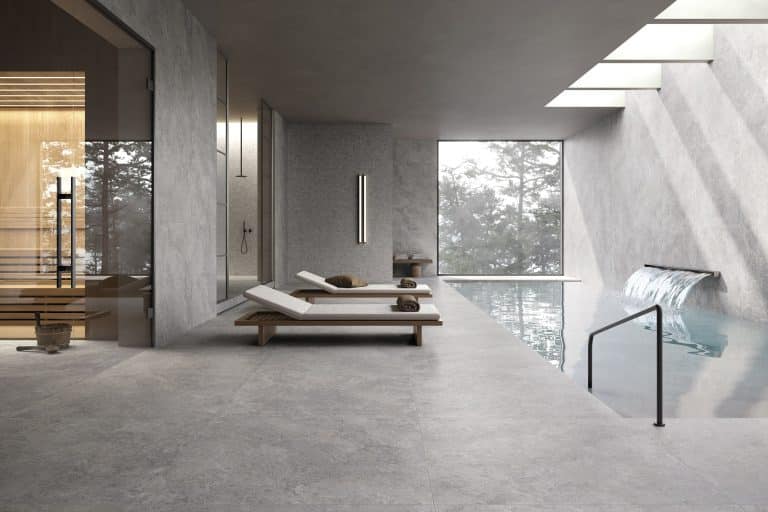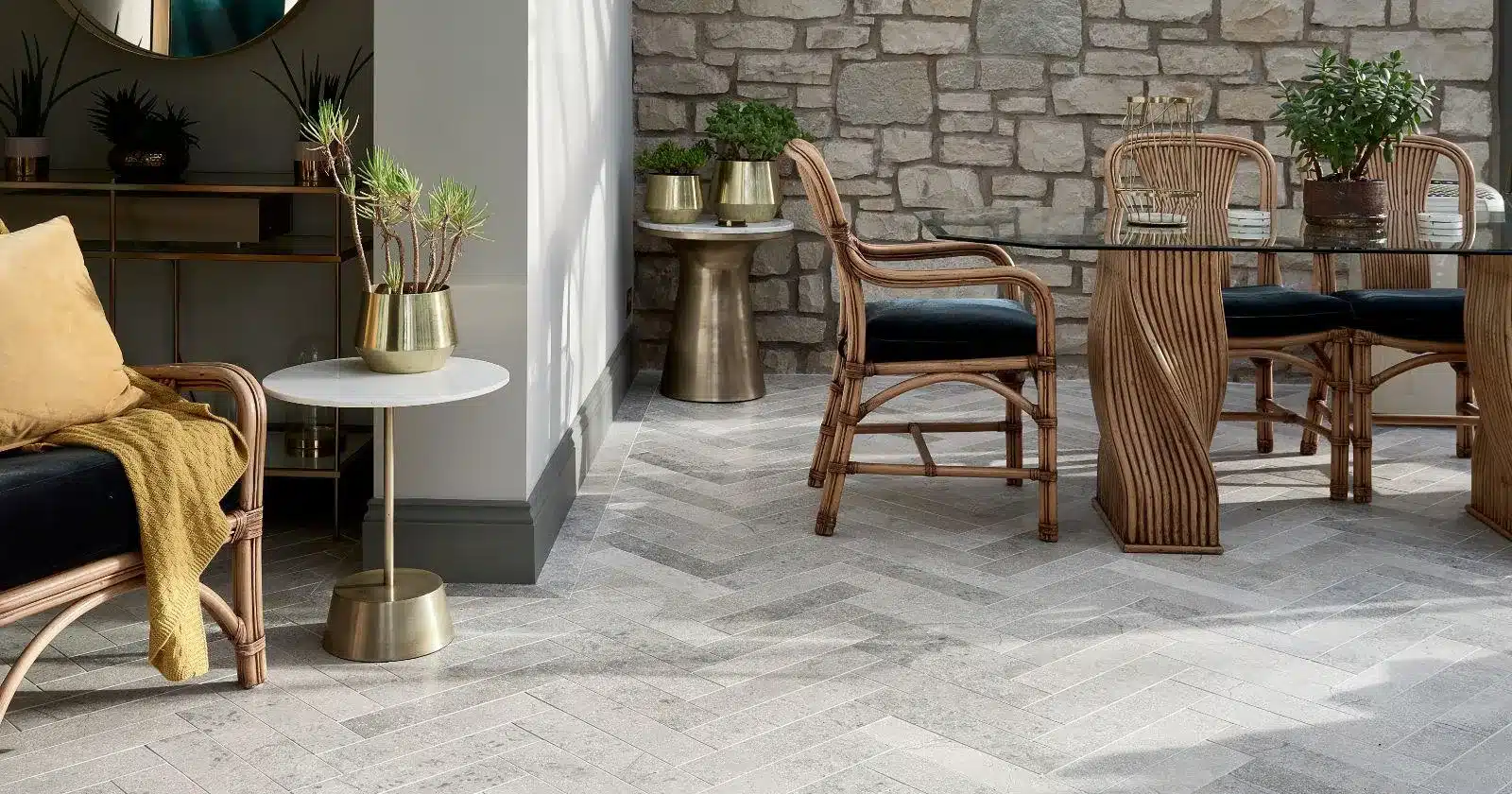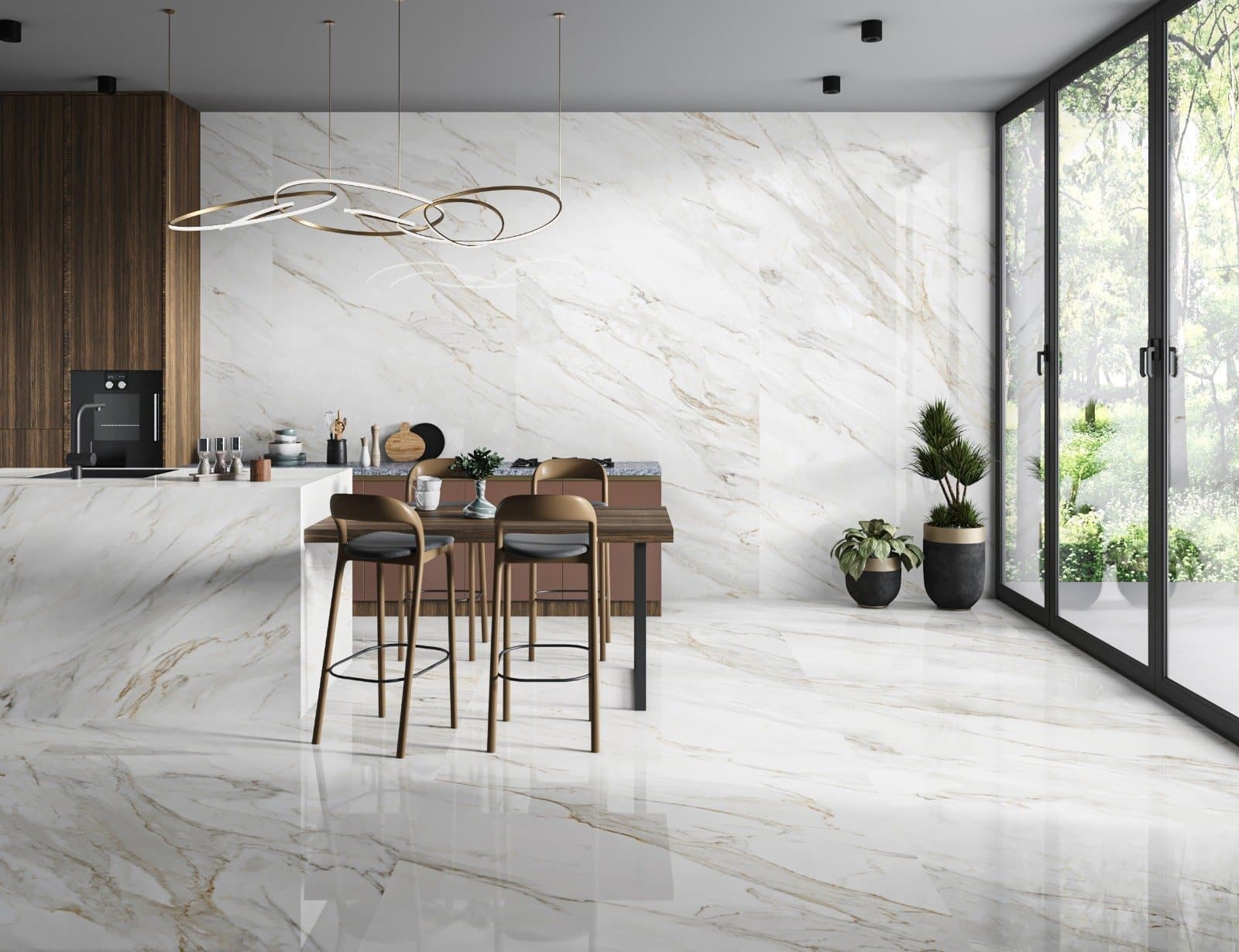Sustainability has become a key consideration in modern design and architecture, with a growing emphasis on eco-friendly materials and processes. Italian porcelain tiles are at the forefront of this movement, showcasing a commitment to both style and environmental responsibility.
By embracing innovative production techniques and sustainable practices, these tiles not only enhance aesthetic appeal but also contribute significantly to reducing environmental impact. Their role in promoting eco-friendly design solutions reflects broader trends towards greener building practices and sets a new standard for the industry.
Sustainability in Materials: The Use of Natural and Recycled Resources
Italian porcelain tiles are renowned for their use of high-quality, natural raw materials such as clay and minerals, which are carefully selected to ensure minimal environmental impact.
These materials are sourced from quarries that employ responsible extraction practices, aiming to preserve ecological balance and reduce landscape disruption. In addition to using natural resources, Italian manufacturers integrate recycled materials into their production process.
Crushed porcelain tiles and glass are often repurposed, reducing the need for new raw materials and diverting waste from landfills. This practice supports a circular economy by extending the lifecycle of materials and reducing the environmental footprint of the manufacturing process.
The incorporation of recycled content not only conserves natural resources but also demonstrates a commitment to reducing waste and promoting sustainability. By combining natural and recycled resources, Italian porcelain tiles exemplify a forward-thinking approach to environmentally conscious design.
Eco-Friendly Production Technologies
Italian tile manufacturers are pioneering efforts to enhance environmental sustainability through advanced production methods. Modern machineries are designed to optimise energy use, significantly cutting CO2 emissions.
Utilisation of renewable energy sources supports this effort, while innovative systems for recycling and minimising water consumption further contribute to conservation. These advancements ensure that the production of porcelain tiles not only meets high standards of efficiency but also aligns with broader environmental goals.
By integrating these eco-friendly practices, the industry sets a precedent for responsible manufacturing that combines durability with a lower environmental impact.
Durability and Long-Term Impact
The durability of Italian porcelain tiles is a crucial factor in their sustainability. These solutions are known for their resilience and long lifespan, which reduces the frequency of replacements and repairs.
This longevity not only enhances their cost-effectiveness but also minimises waste over time. Their robustness makes them ideal for high-traffic areas and demanding environments, supporting sustainable building practices and contributing to low-emission, high-performance projects.
A Stylish Choice for Every Environment
Beyond their sustainability and environmental respect, Italian porcelain tiles offer exceptional versatility, making them an ideal choice for a wide array of environments. Their ability to replicate natural materials such as marble, wood, and stone provides an elegant appearance while maintaining the benefits of durability and low maintenance.
Whether used in bathrooms, kitchens, or outdoor areas, these solutions come in a variety of styles, finishes, and sizes, catering to both modern and classic aesthetics. The extensive design options ensure that there is a porcelain tile solution to complement any interior or exterior theme, from sleek, contemporary settings to traditional, rustic spaces.
Furthermore, Italian porcelain tiles are renowned for their ability to seamlessly blend with various decor elements, enhancing the overall design of a space. Their aesthetic adaptability allows them to serve as a stunning backdrop or a focal point, contributing to the creation of cohesive and visually appealing environments.
The Future of Sustainable Design with Italian Porcelain Tiles
Italian porcelain tiles represent a significant advancement in sustainable design, combining aesthetic appeal with eco-responsibility. As technology and practices continue to evolve, these solutions are expected to remain at the forefront of sustainable building materials.
Their innovative features and commitment to reducing environmental impact set a benchmark for future developments in the industry. Embracing Italian porcelain tiles offers both immediate benefits and long-term advantages in creating sustainable, stylish spaces.
Porcelain Stoneware Surfaces: The Excellence of Ceramiche Refin
With over sixty years of experience in the field of porcelain stoneware surfaces, Ceramiche Refin continues to stand out for the high quality and innovation of its collections. The company shapes unique solutions designed to harmoniously fit into both private and commercial settings.
As part of the renowned Concorde Group, the company is deeply committed to the Made in Italy philosophy, which goes beyond mere style to embody a production model that integrates history, culture, and work ethics. It also places a strong emphasis on sustainability, consistently adopting eco-friendly practices and exclusively using recyclable materials.
Ceramiche Refin’s collections result from a long tradition and meticulous aesthetic research. Among the most appreciated options is BEAT, a line inspired by the mineral world. It combines natural traces and graphic marks on a balanced base, along with delicate chiaroscuro effects and three-dimensional details.
PRESTIGIO, on the other hand, is a marble-effect porcelain stoneware collection distinguished by its elegance and refinement. Capable of adding a touch of luxury and class to both domestic and public settings, it includes high-quality marble varieties from the most renowned Italian and European quarries.
NAMIB is another line particularly valued by the public. Inspired by the Namib Desert, one of the world’s oldest and a UNESCO World Heritage site, it combines a sense of vastness and essentiality, bringing the magnificent spectacle of pristine nature into indoor spaces.
For wood-effect collections, TAMASHI stands out. Inspired by the purity of essential woods, it is distinguished by surfaces with dense, knot-free grains, which provide a natural and contemporary aesthetic to environments.
Finally, HALO offers brick-effect tiling and is available in the innovative 6×24 format. Eclectic and contemporary, the collection alternates between light and dark halos, pinholes, and features irregularities, particularly near the edges. It thus emerges as the perfect choice for creating sophisticated contrasts suitable for any area of the home.











